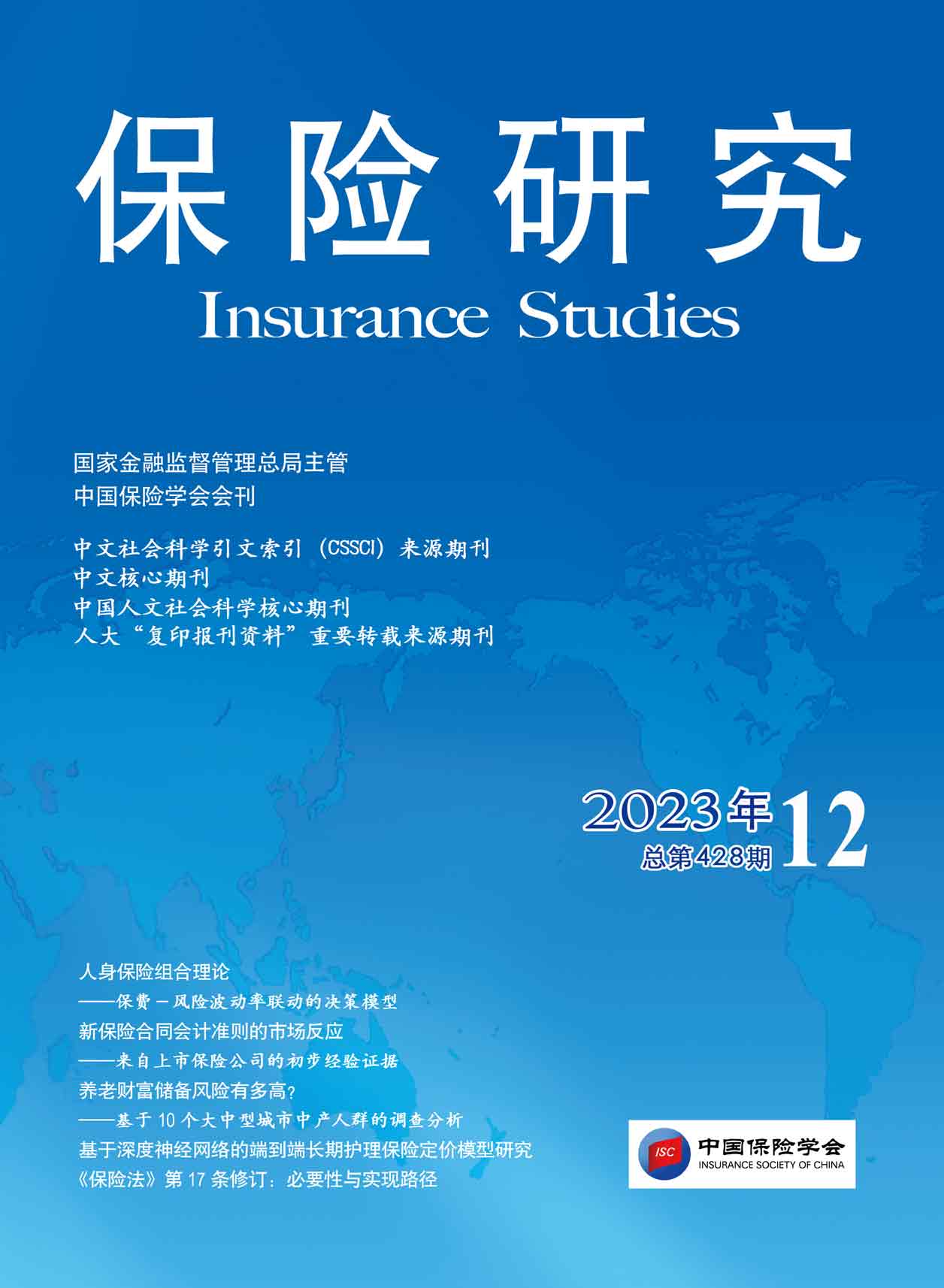
《保险研究》20231208-《“倾斜性”三重医保政策如何影响低收入人口医疗服务需求——兼论防止规模性因病返贫》(鲍震宇、王智广)
[中图分类号]F840.684 [文献标识码]A [文章编号]1004-3306(2023)12-0097-15 DOI:10.13497/j.cnki.is.2023.12.008
资源价格:30积分
- 内容介绍
[摘 要]本文基于中国健康与养老追踪调查(CHARLS)2015和2018面板数据,使用倾向得分匹配-倍差法(PSM-DID)研究了“倾斜性”三重医保政策对低收入人口医疗服务需求的影响,并进一步探讨了脱贫攻坚成果接续乡村振兴战略阶段实施的“倾斜性”三重医保统一政策的保障效果。研究发现,第一,倾斜政策可使低收入人口住院率显著提高8.9%,住院支出显著提高60.3%,住院自付医疗费用降低34.3%,但未对门诊需求产生激励效应;第二,倾斜政策对医疗服务需求的影响存在地区异质性,主要表现为西部地区住院医疗服务利用率和医疗支出的提高;第三,接续乡村振兴战略实施的统一保障水平的政策机制下,起付线和目录外费用等无补偿医疗对正规保障征收了较高的隐性税,需防范保障不足引起的医疗支出型贫困。因此,全面推进乡村振兴应持续优化“倾斜性”三重医保政策机制,但需注意化解隐性税带来的规模性因病返贫风险。
[关键词]“倾斜性”三重医保政策;医疗服务需求;PSM-DID
[基金项目]本文是国家自然科学基金项目(72064031)、内蒙古自治区直属高校基本科研业务费项目(NCYWR22011)、内蒙古自治区高等学校青年科技英才支持项目(NJYT24015)的阶段性研究成果。
[作者简介]鲍震宇,内蒙古财经大学财政税务学院教授,研究方向:医疗保障;王智广,内蒙古农业大学助理研究员,研究方向:农村牧区发展。
How Does the Tilted Triple Medical Security Policy Affect the Demand for Medical Care among Low-income Population?—Concurrently on Preventing from Large-scale Risk of Relapse to Poverty due to Illness
BAO Zhen-yu,Wang Zhi-guang
Abstract:Based on panel data from 2015 and 2018 China Health and Retirement Longitudinal Study(CHARLS),this article uses the PSM-DID method to study the impact of the “tilted” triple medical security policy on the demand for medical services among low-income population,and further explores the protection effect of the unified triple medical insurance policy implemented during the rural revitalization period in succession to the victory in poverty alleviation.The study finds that,firstly,the tilted policy can significantly increase the hospitalization rate of low-income households by 8.9%,increase hospitalization expenses by 60.3%,reduce self-paid hospitalization expenses by 34.3%,but have no incentive effect on outpatient demand.Secondly,the impact of “tilted” policies on the demand for medical services has regional heterogeneity,mainly manifested in the improvement of utilization rate of inpatient medical services and medical expenditure in the western region.Thirdly,under the policy mechanism of implementing a unified level of security during the rural revitalization period,non-compensatory medical services such as the deductible line and off-catalog fees have imposed higher implicit taxes on formal security.This means it is necessary to prevent medical expenditure-induced poverty caused by insufficient security.Therefore,during the period of rural revitalization we should continue to optimize the tilted triple medical security policy mechanism,while forestall the large-scale risk of relapse to poverty due to illness caused by implicit taxes.
Key words:tilted triple medical security policy;demand for medical care;PSM-DID
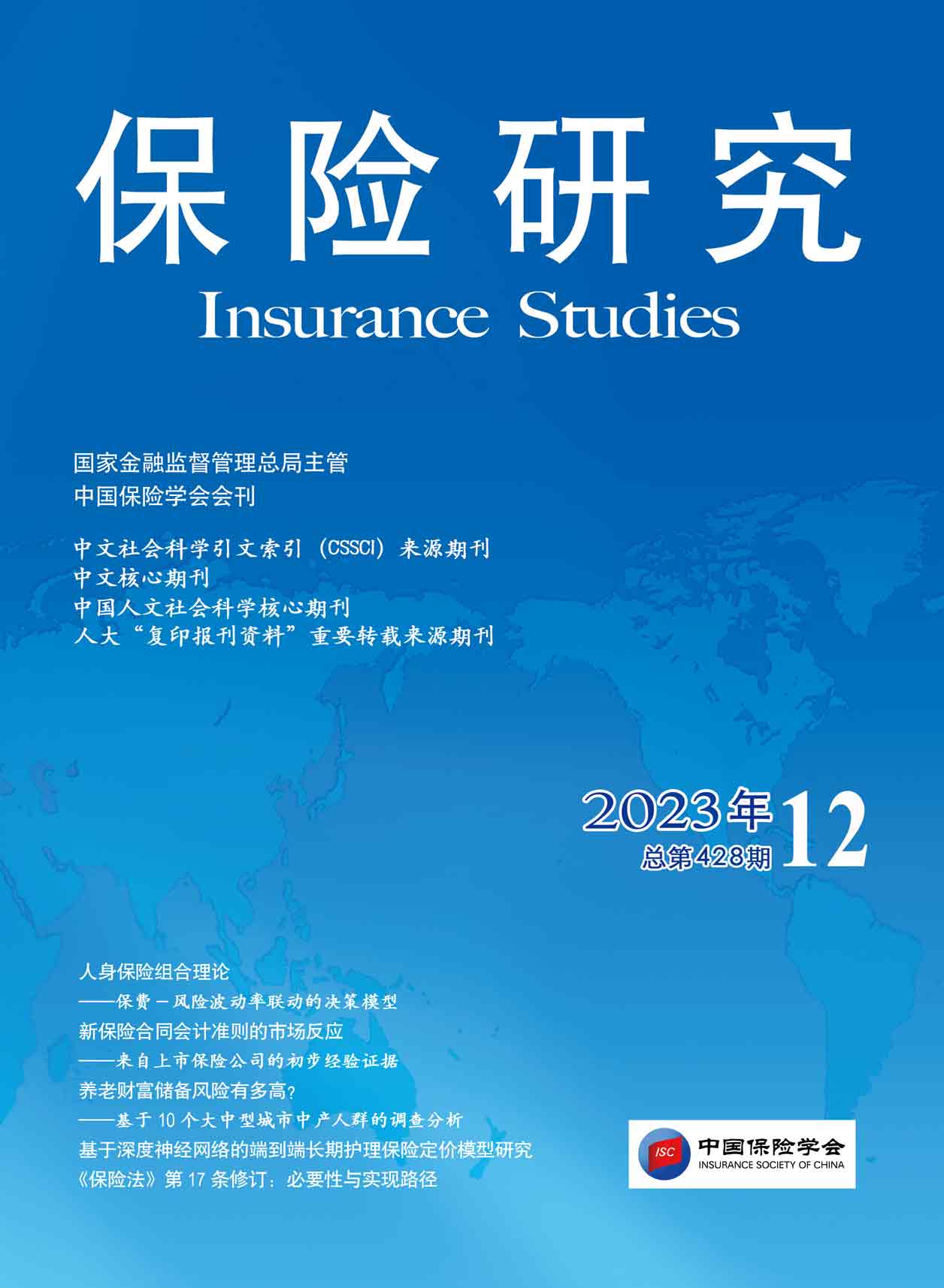
《保险研究》20231201-《人身保险组合理论——保费-风险波动率联动的决策模型》(张程、范雨文、曹铸、王洪彬)
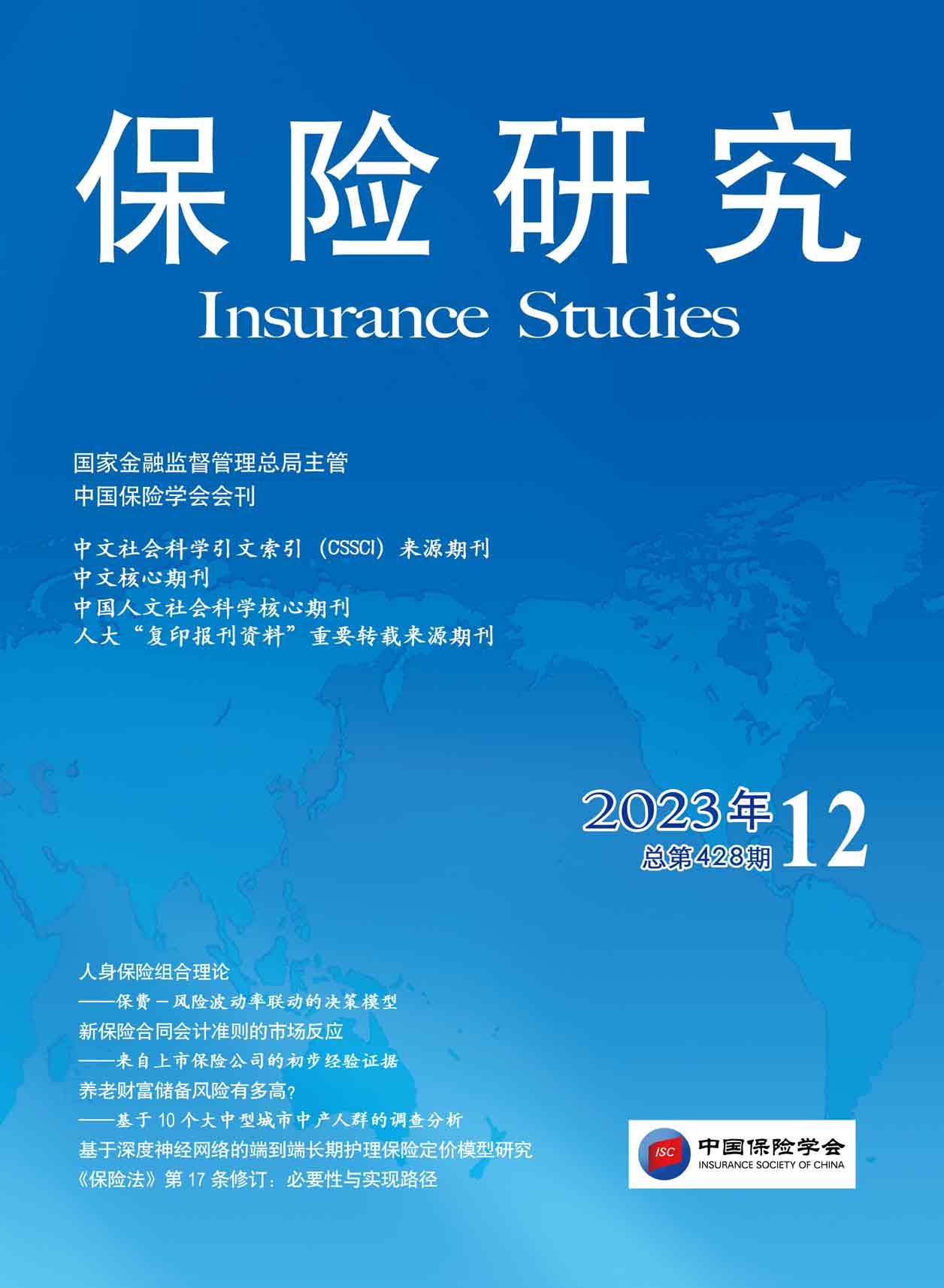
《保险研究》20231202-《新保险合同会计准则的市场反应——来自上市保险公司的初步经验证据》(彭雪梅、段伊雪、王佳)
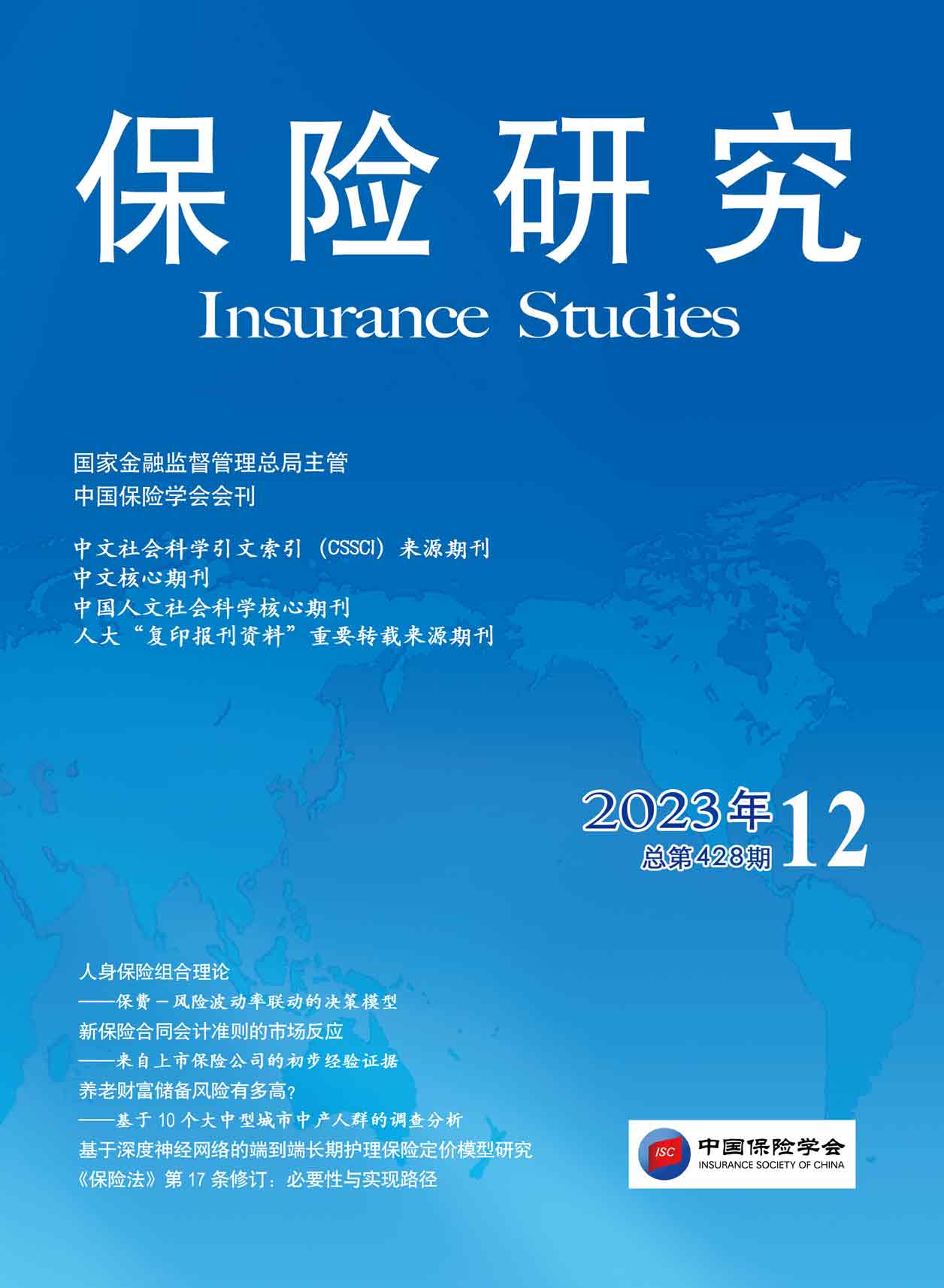
《保险研究》20231203-《套期保值效果与“保险+期货”赔付合理性——基于玉米和大豆试点项目的实证分析》(鞠荣华、顾巧静)
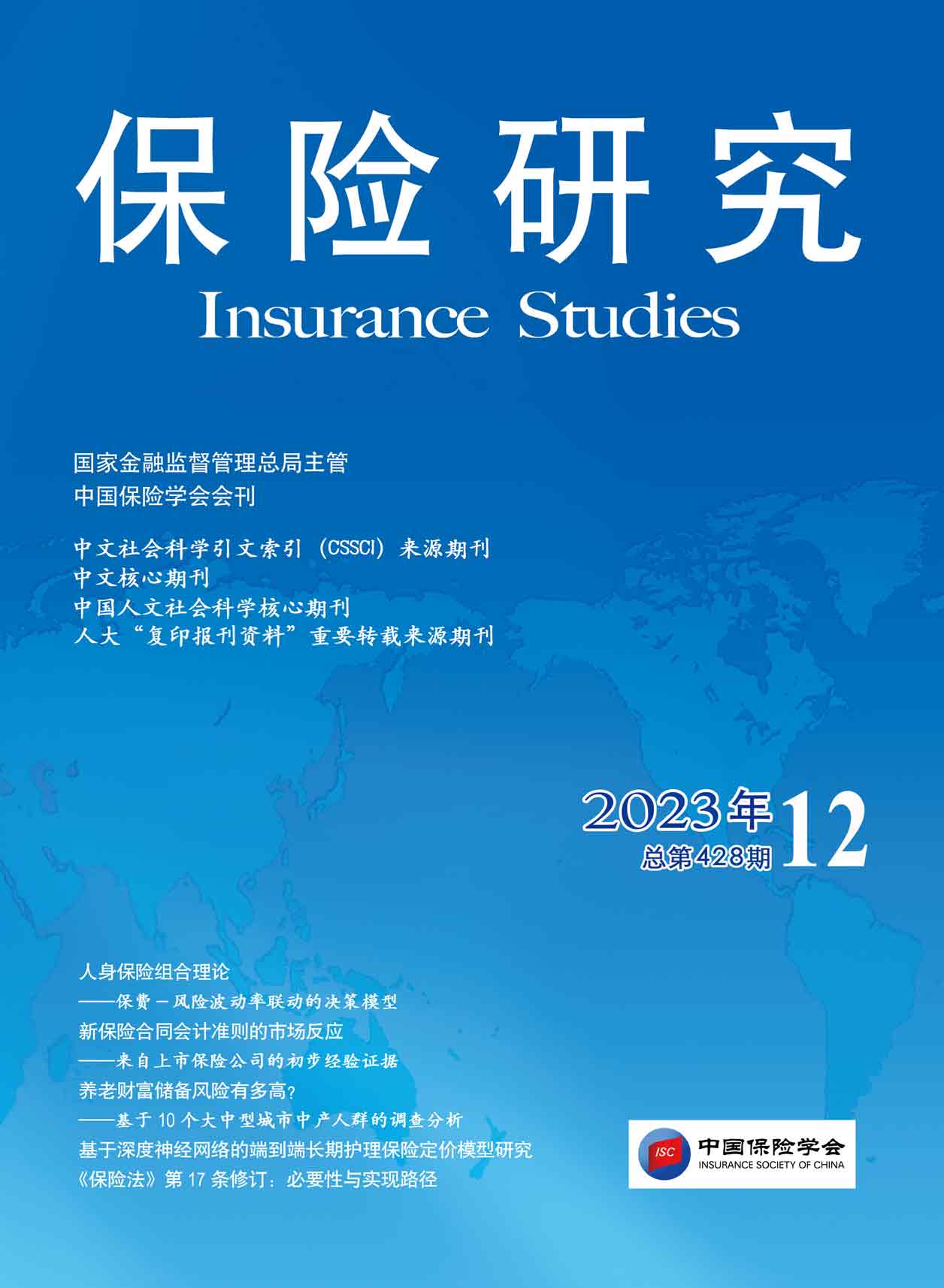
《保险研究》20231204-《养老财富储备风险有多高?——基于10个大中型城市中产人群的调查分析》(冯扬、房连泉)
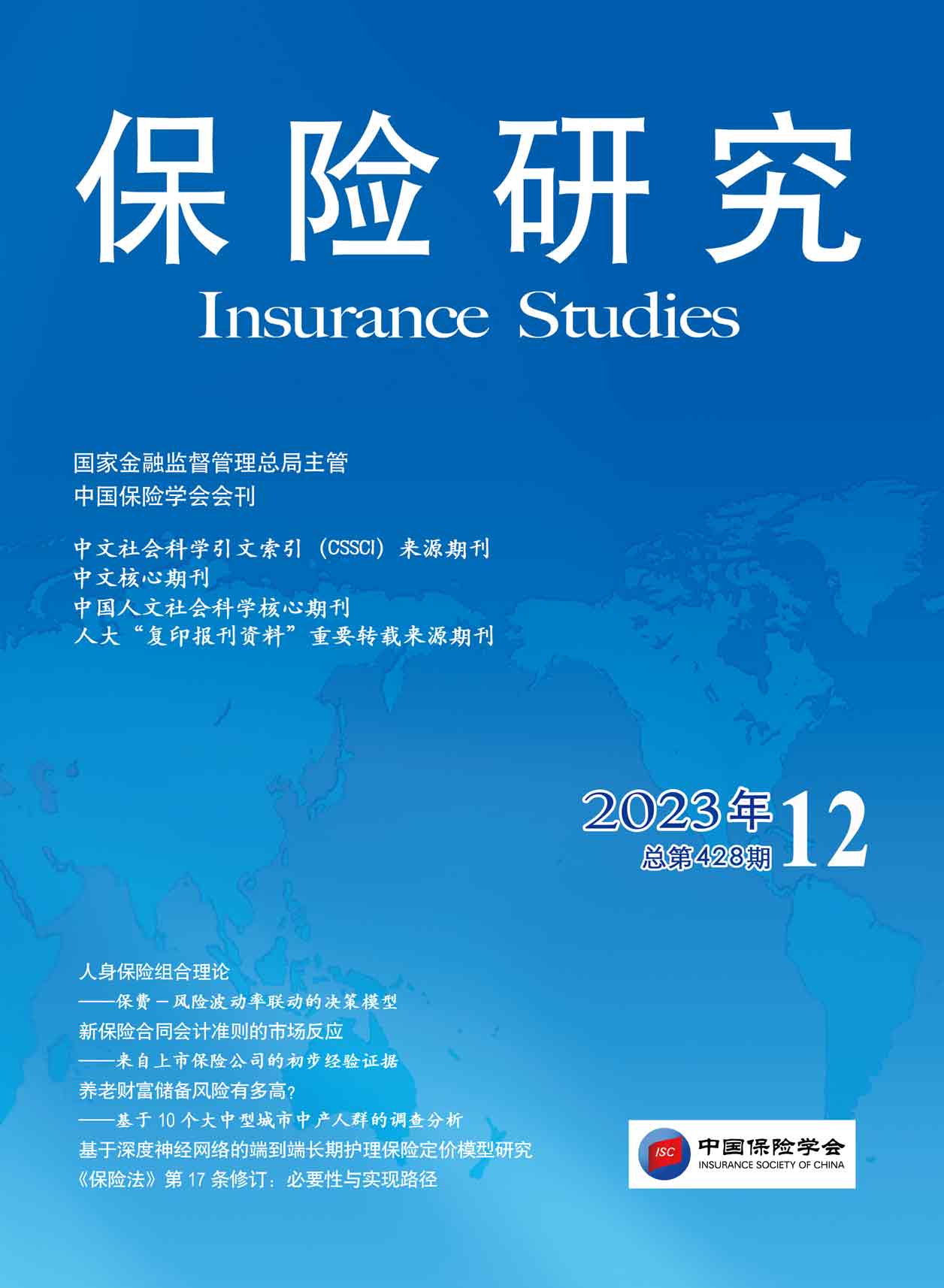
《保险研究》20231205-《社保基金持股对企业ESG改善的实证分析》(杜秋萱、姜岩、侯德帅)
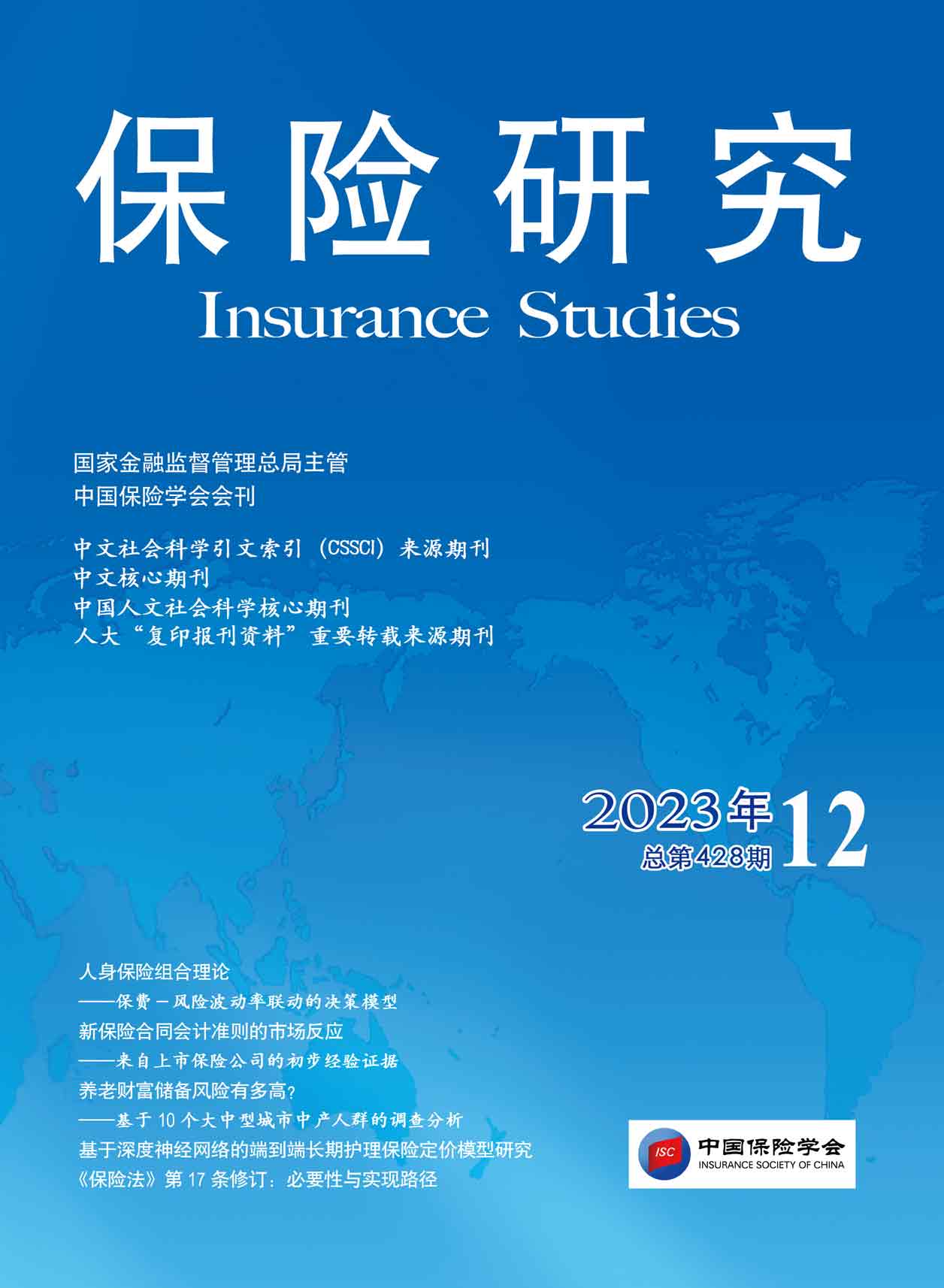
《保险研究》20231206-《基于深度神经网络的端到端长期护理保险定价模型研究》(仇春涓、刘守贤、 张楠)
